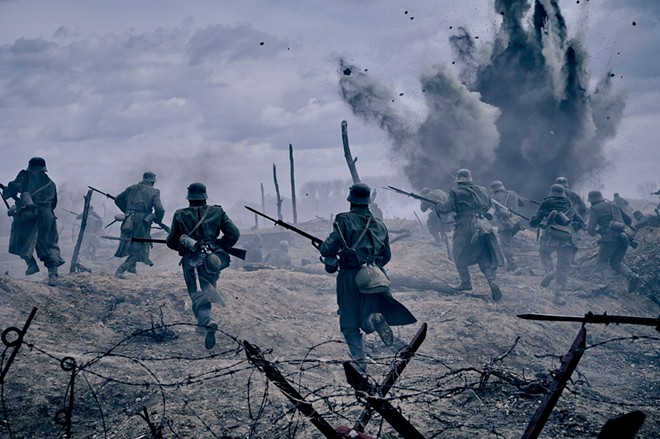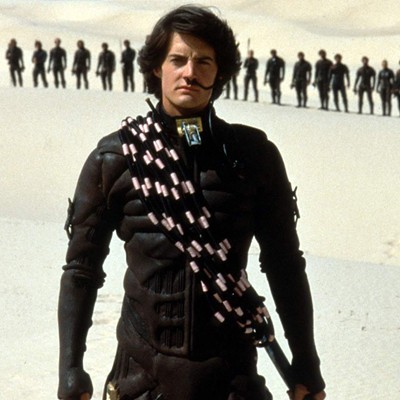"For what can Warr, but endless warr still breed" — John Milton, "Sonnet XV"
I think we've reached the point that a straightforward war movie — no matter how well executed — is inherently bad art.
This thought couldn't escape my mind while watching the latest cinematic adaptation of All Quiet on the Western Front. The German adaptation of the classic novel was one of the most acclaimed movies of 2022. Depicting the horrors of trench warfare during World War I from the perspective of a young German soldier, the movie has been nominated for eight Academy Awards including Best Picture. It is an undeniably well-made movie from a technical standpoint with vivid, textured details.
And I felt absolutely nothing while watching it.
But I don't totally place that at the feet of All Quiet on the Western Front. Some of it is inherent to what the war movie genre has become.
Essentially there are two main strains of war movies: anti-war features that try to underscore how war is hell and almost propagandist celebrations of heroic war feats.
That latter is hardly even wasting breath over as it was definitely more of a pre-Vietnam rah-rah recruiting tool meant to prop up American spirits more than anything. Certainly, those films still exist in some form, but usually it's fluffier popcorn entertainment without getting into anything that gritty. It's the realm of films like Top Gun: Maverick or Devotion or Pearl Harbor, where you can tell the heroism package they're selling by glancing at the movie poster for three seconds. It's all well and good (I thought Maverick was a blast), but those flicks really don't ask viewers to take anything that seriously.
My issue is with the anti-war strain, which All Quiet definitely falls under.
Of course, this subcategory took off with depictions of recent warfare in the Vietnam War era, where the militaristic patriotism took a hit and harrowing depictions of the senseless violence led to classic films like Apocalypse Now, Platoon and Full Metal Jacket. And there can still be standouts that exist under this anti-war umbrella, whether taking an arch approach (M*A*S*H), shedding light on new ages of battle (The Hurt Locker) or even simply reveling in moviemaking gimmickry (1917, and its one-shot approach).
But at this point most of the films of this ilk — especially ones told in a dour, straightforward manner while depicting wars that have been covered ad nauseam (heck even, Wonder Woman had a WWI trench warfare scene) mostly just ring hollow. It's not that the depictions of the havoc — bodies caked in mud, limbs blown off, brutal close-range killings, rows of young men being mowed down — aren't trying to make a clear point. But if you've seen your fair share of war films, they reveal absolutely nothing new about the history, psychology and cost of war.
Oh, war is bad and we probably shouldn't do it? Thanks.
Trench warfare was an insane way to wage battle that literally killed millions? I had no idea.
Some high-ranking officials don't care about sending their men to get slaughtered? Wow, never considered that.
These movies want to show us war in the most brutal ways possible (while still not going past an R rating), and advances in moviemaking technology and processes allow each new incarnation to up the ante. The cinematography in All Quiet blows the prior big screen adaptations of the same text (in 1930 and 1979) out of the water.
But to what end? At a certain point, having seen warfare like this depicted on celluloid dozens and dozens of times creates the opposite of the intended effect. I wasn't more horrified by the more graphic depictions of death and despair, I was far less impacted. I was numb to it.
When there's nothing really new about the story being told, it becomes more a process of desensitizing viewers to the carnage of war. Instead of trying to evoke sympathy for these poor soldiers, it begins to feel exploitative. All Quiet and films of its ilk now feel less like war films and more torture porn movies set against the backdrop of a battlefield. ♦
























